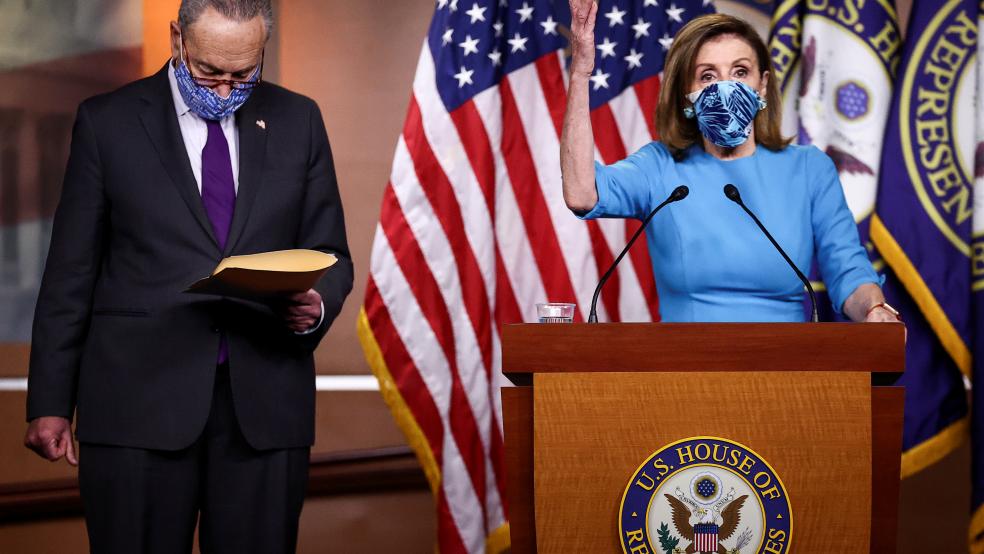Democratic lawmakers have an enormous amount of work to do to pass two major spending bills that contain the bulk of President Joe Biden’s economic agenda, and just a few weeks to get it done.
In order to advance that agenda, House Speaker Nancy Pelosi (D-CA) appeased a small but crucial group of centrists by agreeing to hold a vote on the $1 trillion bipartisan infrastructure bill by September 27. But a larger and equally crucial group of progressives within the Democratic caucus want to vote on the $3.5 trillion “human infrastructure” plan before then, creating a race to finish the larger piece of legislation before the deadline.
“The coming weeks will be intense,” Pelosi said in a letter to Democrats Wednesday.
In an interview with Punchbowl News, Rep. Pramila Jayapal (D-WA), the chair of the Congressional Progressive Caucus, explained why her group wants to vote first on the larger bill. “[T]he reality is, the totality of the Biden agenda, the Democratic agenda that we ran on and we now have to deliver on, is really contained within the reconciliation bill,” she said. “So let’s pass that first, and then we’ll make sure we send both bills to the president’s desk to sign.”
Preparing for the race: The $3.5 trillion spending plan passed by the Senate two weeks ago is basically an outline with topline dollar figures that needs to be filled in with policy details. A tentative schedule seen by Punchbowl News shows that House committees that create those details plan to start the markup process next week, with the Natural Resources and Oversight Committees getting to work on September 2.
Eight more committees are scheduled for markup sessions the following week, and another six the week after. The schedule shows that Democrats will attempt the finish the process by the non-binding deadline of September 15, theoretically leaving enough time for the legislation to be turned into a final package and receive a vote on the House floor before the end of the month.
“[T]hat’s a super ambitious timetable,” Punchbowl said Thursday. “So we’ll see what happens.”
Battle over spending: A central question in the markup process will be the spending total. The Senate authorization allows for up to $3.5 trillion in the final bill, but it could be less – and there is already pressure from centrist and conservative Democrats to reduce the total.
Democratic Sens. Joe Manchin (KY) and Kyrsten Sinema (AZ) have repeatedly expressed their opposition to the size of the $3.5 trillion bill, and party leaders will need to figure out a way to get them on board given their 50 seats in the Senate. But they’re not the only ones who want to see a smaller bill.
“Kyrsten and Joe get the most attention, but they’re not alone in wanting that number to be lower,” Sen. Chris Murphy (D-CT) told Politico. “My hope is that we're not making decisions based on an arbitrary number. That we're looking at the programs we need to fund and the programs that we don't need to fund.”
The battle could be intense, though, with progressives pushing to maintain the $3.5 trillion total.
“I already negotiated. The truth is we need more,” Sen. Bernie Sanders, who has called for $6 trillion in spending, told Politico. “The needs are there. This is, in my view, the minimum of what we should be spending.”




